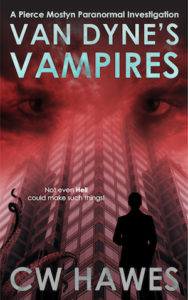Every day I’m in contact with indie authors (independent author-publishers) who are looking to make it big and are languishing in obscurity.
Back in 2014, when I started publishing, the indie world was changing. The old days were for all intents and purposes gone. The days of simply writing and putting your books up on Amazon, making the first book in your series free or 99¢, and collecting the money. Those days ended in 2014.
Unfortunately, all of the successful writers from whom I was getting my advice, didn’t see the newer, more difficult world coming.
Hindsight is always 20/20.
However, 5 years later, as I continue to look for monetary success, there remain three keys that all successful indie writers follow. These worked in the past and they work now. And while I do follow these three keys, I haven’t struck gold — yet. But that doesn’t mean others haven’t done so by following these keys — for they have.
So, my writer friends, and interested reader friends, lets take a look at these keys. But first,
The Base
Success always builds on a strong base. For writers that base is:
-
-
- Good writing. You have to know how to tell a story. The story your target audience wants to hear in the way they want to hear it. If you can’t tell a good story, you need to learn how before you do anything else.
- A good looking package. Your book needs to look appealing. That means appropriate cover art for the genre. Cover art that looks professional.
- A pleasant reading experience. The text needs to be well formatted and free of typos and textual issues as much as possible.
-
Now on to the keys!
Publish Often
Every successful indie author publishes often. “Often”, of course, is subject to debate. How often is often?
There is a well-known phenomenon on Amazon: the 30 day cliff. Publish a book and after 30 days, it drops off the charts. I’ve seen this with my own books. I’d get a few sales in the first 30 days, and after that nothing.
The best way to beat the 30 day cliff is by publishing often.
January through March of 2018 I published the first three Pierce Mostyn books. One each month. Sales didn’t start falling off until July. I published Van Dyne’s Vampires in October, but it was too late to revive dropping sales. The advantage I’d gained from the rapid release was gone.
The lesson I learned was — I can’t wait 7 months to release my next book.
At a minimum, I think indie authors need to publish a book every 3 months. Quarterly is the minimum publishing schedule to maintain some kind of momentum.
However, every other month would be even better.
And monthly is ideal.
Why?
It has has to do with the nature of the indie audience. The readers of indie authored books tend to be voracious readers. Reading several books a week. Or more.
I’m a rather slow reader. Yet I manage to read at least 2 books a month and usually more.
Indie writers need to publish often to feed the indie reader.
If you don’t publish often — you will be forgotten.
Remember, thousands of books are added to Amazon’s catalog every day.
Write Fast
The corollary to Publish Often is to write fast.
In the pulp era, fast writing meant food on the table and a roof over the writer’s head.
Hugh B Cave averaged 5 to 6 stories every week. That’s easily equivalent to 2 novels a month.
Erle Stanley Gardner, while working full time as a partner in his law firm, wrote 100,000 words a month. And in the beginning of his writing career he was experiencing a 90% rejection rate.
My hero, Anthony Trollope, while working full time at the post office, wrote 2,500 words per day.
If you want to make money, if you want readers, writing must be viewed as a job. A business. Set goals and keep them.
Trollope wrote what I think is a doable daily quota. He used writing sprints (he apparently invented them) to achieve his daily goal. He timed himself and aimed for 250 words every 15 minutes.
Using a 15 minute sprint, I’ve easily surpassed 250 words in that 15 minutes. So Trollope’s word count is achievable. And the nice thing about writing sprints is that you can scatter them throughout the day if you have to in order to achieve your word count.
A goal of 2,000 words/day, if met, will produce 730,000 words in a year. That’s a dozen 60,000 word novels. Does any writer actually need more than that?
Write in Series
The final key is that indie authors must write in series. Why? Because indie readers want to read series of books rather than standalone novels.
The readers of traditionally published books tend to read fewer books and are okay with the standalone novel. Not so, indie readers.
Indie readers also prefer novels to short stories. And novels to even novellas. Something to keep in mind.
Summary
Write fast, in series, and publish often. That is the baseline. If you aren’t doing those things, you are setting yourself a nearly impossible task if you want to gain readers and make money from your writing.
Advertising won’t do it. A mailing list won’t do it. A website or a closed Facebook group won’t do it. There are no substitutes.
Michael Anderle fast published his way to a half million a year income from writing. Advertising helped — but only after the series was selling. He knew he could pour money into advertising because the series was already selling on its own.
For me, I know publishing a book a month isn’t realistic. I don’t write fast enough. But I do think once a quarter is doable.
So there it is. Go forth my friends and write and publish and then write some more!
Comments are always welcome! And until next time, happy writing (and reading)!
Share This!
